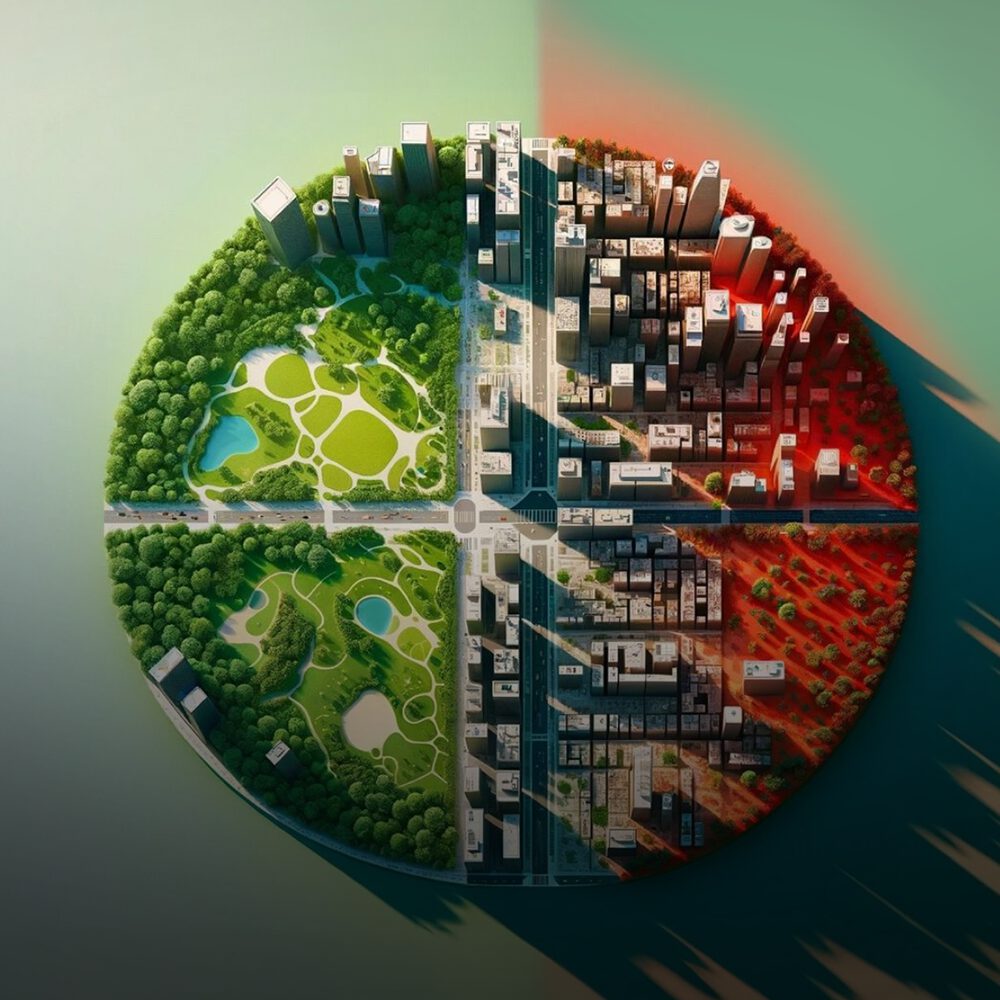Addressing Urban Heat
##UrbanCooling #SustainableCities #UrbanHeatIsland #ENVI_met #GreenUrbanPlanning"The Urban Heat Island (UHI) effect is increasingly recognized as a major challenge in urban development. Cities are warmer than their surrounding rural areas, requiring effective cooling strategies to improve urban livability and sustainability. Last Wednesday, we explored the causes of urban heat islands and discussed innovative solutions to cool our cities in a session with Prof. Emanuele Naboni and ENVI-met founder Prof. Dr. Michael Bruse.
Understanding urban heat islands
Urban heat islands are caused by the absorption and retention of heat by buildings and pavements, sparse vegetation and the concentration of human activities, resulting in higher temperatures compared to rural areas. This phenomenon escalates energy consumption, increases air-conditioning costs, and increases the risk of heat-related health problems, making it a critical urban issue.
Bridging theory and practice with Prof. Emanuele Naboni
The session highlighted the impactful work of Prof. Emanuele Naboni, who collaborates with institutions such as the Norman Foster Institute in Madrid and the University of New South Wales (UNSW) in Sydney. Prof. Naboni’s work, which ranges from collaborations with NASA to architectural firms like BIG, demonstrates his key role in applying theoretical insights to practical urban cooling measures.
Key takeaways from the session
The discussion with Prof. Naboni and Prof. Dr. Michael Bruse focused on several strategies for urban cooling:
- Green Infrastructure: Emphasizing the role of green roofs, parks, and green walls in reducing temperatures.
- Reflective materials: The use of heat-reflective building materials to reduce urban heat.
- Strategic Planting: The benefits of planting trees for shade and cooling through transpiration.
- Urban Design Innovations: Incorporating water features and optimizing street layouts for better air flow
ENVI-met’s role in urban cooling
ENVI-met, presented by Prof. Dr. Michael Bruse, provides advanced simulation tools for evaluating the effectiveness of different cooling strategies on urban heat islands. This platform is essential for researchers and urban planners committed to creating sustainable and cooler urban areas. The session highlighted the need for collaborative efforts to address urban heat islands. By combining scientific research with practical applications, we can significantly improve urban comfort and sustainability.
We appreciate the insights and contributions of our speakers and participants. As we pursue new strategies to mitigate urban heat, our collective commitment to cooler, sustainable urban environments remains strong.
This session marks the beginning of ongoing discussions and initiatives aimed at transforming urban areas into more comfortable and sustainable spaces. Stay tuned for further updates and collaborative projects aimed at setting new standards in urban sustainability.
